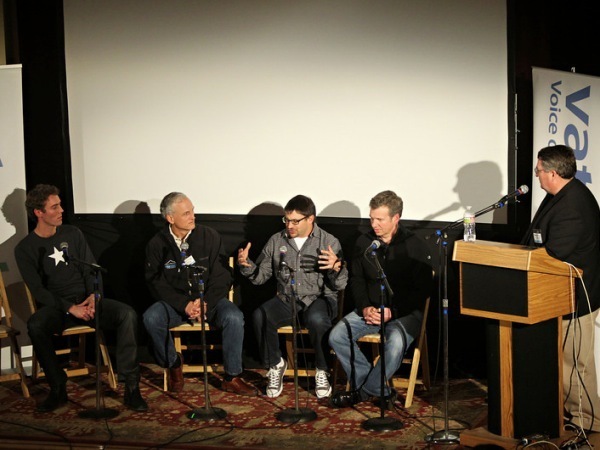
We decided to mix things up a bit at this year’s Vator Splash, introducing a panel discussion for the very first time. Sitting on the panel were four investors– Thomas Korte (AngelPad), Tod Francis (Shasta Ventures), David Hornik (August Capital), and Rob Hayes (First Round Capital). Moderating was Duncan Davidson (Bullpen Capital).
Bringing Splash to a close, the panel faced the hard task of conversing about super angels in front of an audience that had by then emptied quite a few bottles of Cannonball wine and Quill, courtesy Arizona Bay. But they made it interesting.
Here are my key takeaways from the talk.
Francis pointed out that angel money has been significant for decades. Over the last 20 years, it might not have seemed as passionate as it does today, but companies like Cisco and Intel were originally funded by angels. The difference now is that there are a number of professional and well-organized angels.
VCs are seeing promising companies earlier, according to Hornik, and they’re taking more risks than they used to. “All of this is great for entrepreneurs and perfectly fine for venture investors,” he said.
In response to a comment from Hayes that startups these days can get started “with a credit card and a bag of potato chips,” Hornik said it doesn’t really matter because companies will always face problems of scale. Hayes agreed and pointed to Twitter; all they have is a platform for short messages but they just raised a massive round to keep scaling.
Korte: “We have a very healthy ecosystem. It is more developed now than it was 10 years ago.”
–Next came the big question about bubbles. There was a big one in the PC era, another in dot-com era, then a few fizzles since. Are we at the start of the next big tech bubble or is this just froth that will go away in a year or two?
“We’re not in a bubble,” Francis argued, in terms of liquidity. He’s very optimistic about the next 10 years.
Hornik thinks the only thing that could potentially lead to lawsuits is “all this second market crap,” referring to the voracious trading of private company stock on services like SecondMarket. “You’re either getting financials illegally or you’re an idiot,” he quipped.
–The moderator noted that a bunch of startups are starting to go public, like Demand Media and LinkedIn. Popular secondary market startups like Twitter, Groupon, Zynga and Facebook could be next.
The difference between the market now and the last big bubble, however, is that LinkedIn, Groupon, Zynga and Facebook are making hundreds of millions of dollars. “No one questions whether Google was appropriate to be public,” Hornik said. “And whatever you think of Yahoo, it is a real business.” He thinks there’s a possibility that between five and 10 really profitable and valuable businesses could go public in the next year.
Concurring, Hayes said, “If it requires $100 million in revenue to go public, we’re not in a bubble.”
The key for angels, Korte said, is not to just invest in four or five companies, but to invest in 40 (à la Y Combinator).
Francis said the frenzy of market is fueled in part by this kind of mentality: “I want to get on the next Facebook.” But it’s not actually easy to do that; any small company today could technically be the next Facebook.
Hayes said the great thing about core technology deals is that businesses there believe no one else can build their product, so they can take their time, understand the market, and build their business carefully.
Korte goes so far to say that there is not enough core technology being built.















